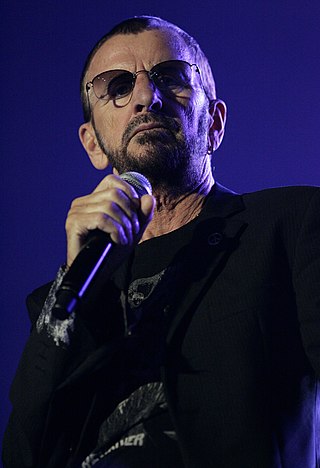
English musician Ringo Starr has released 20 studio albums and 46 singles. Starr achieved international fame as a member of British rock band the Beatles.
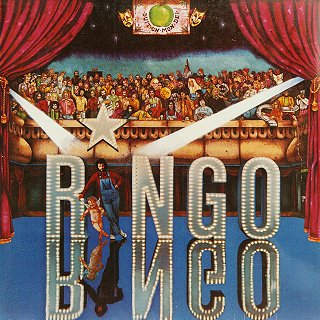
Ringo is the third studio album by English musician Ringo Starr, released in 1973 on Apple Records. It peaked at No. 7 on the UK Albums Chart and No. 2 on the Billboard 200 and has been certified platinum by the RIAA. In Canada, it reached No. 1 on the RPM national albums chart.

Ringo Rama is the 13th studio album by Ringo Starr, released in 2003.

Goodnight Vienna is the fourth studio album by Ringo Starr. It was recorded in the summer of 1974 in Los Angeles, and released later that year. Goodnight Vienna followed the commercially successful predecessor Ringo, and Starr used many of the same players, including Billy Preston, Klaus Voormann, Robbie Robertson, Harry Nilsson, and producer Richard Perry. The title is a slang phrase meaning "it's all over".

Blast from Your Past is a compilation album by English rock musician Ringo Starr, released on Apple Records in 1975. It is both Starr's first compilation LP and his final release under his contract with EMI. It was also the last album to be released on the Beatles' Apple label until it was revived in the 1990s.
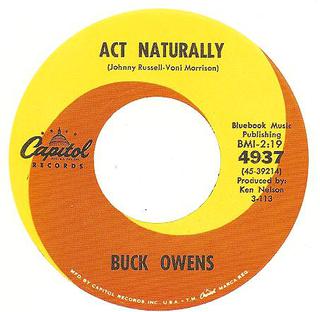
"Act Naturally" is a song written by Johnny Russell, with a writing credit given to Voni Morrison and publishing rights transferred to Buck Owens. It was originally recorded by Buck Owens and the Buckaroos, whose version reached number one on the Billboard Country Singles chart in 1963, his first chart-topper. In 2002, Shelly Fabian of About.com ranked the song number 169 on her list of the Top 500 Country Music Songs.

"It Don't Come Easy" is a song by English rock musician Ringo Starr that was released as a non-album single in April 1971. It was produced by Starr's former Beatles bandmate George Harrison, who also helped write the song, although only Starr is credited. Recording for the track took place in March 1970 at Trident Studios in London, with overdubs added in October. Starr and Harrison performed the song together in August 1971 at Harrison's Concert for Bangladesh shows in New York City, a recording from which was released on the live album of the same name. Starr has continued to perform it in subsequent decades with his All-Starr Band.

Ringo the 4th is the sixth studio album by English musician Ringo Starr, released on 20 September 1977. Its title is sometimes ascribed to him being the fourth member of the Beatles. Others have suggested that it is his fourth mainstream album, which excludes his Great American Songbook homage, Sentimental Journey, and his country-western foray, Beaucoups of Blues. However, Ringo the 4th is a dance-oriented record, crafted for him by his Atlantic Records producer, Arif Mardin.
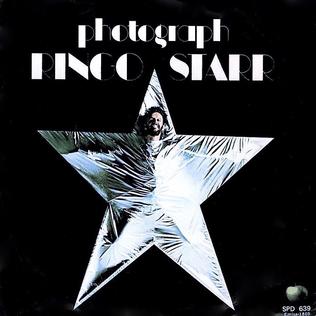
"Photograph" is a song by English rock musician Ringo Starr that was released as the lead single from his 1973 album Ringo. Starr co-wrote it with George Harrison, his former bandmate from the Beatles. Although they collaborated on other songs, it is the only one officially credited to the pair. A signature tune for Starr as a solo artist, "Photograph" was an international hit, topping singles charts in the United States, Canada and Australia, and receiving gold disc certification for US sales of 1 million. Music critics have similarly received the song favourably; Stephen Thomas Erlewine of AllMusic considers it to be "among the very best post-Beatles songs by any of the Fab Four".

Bad Boy is the seventh studio album by English rock musician Ringo Starr, released in 1978 by Polydor Records. The album was released at a time of diminishing success for Starr, failing to chart in the UK and reaching only No. 129 in the US and No. 98 in Australia, with none of its singles charting in either the UK or US. Prior to its release in the US, it was cross-promoted with the TV special Ringo, which was poorly received, and a planned follow-up special never came to fruition. Bad Boy would ultimately be Starr's final album release for Polydor.

Stop and Smell the Roses is the eighth studio album by English rock musician Ringo Starr. Released in October 1981, it followed the twin commercial failures of Ringo the 4th (1977) and Bad Boy (1978). The album includes the hit single "Wrack My Brain", written and produced by George Harrison, but otherwise failed to find commercial success. It also includes contributions from Paul McCartney, Harry Nilsson, Ronnie Wood and Stephen Stills.
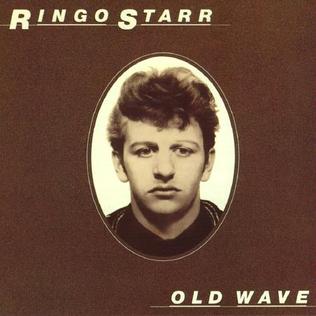
Old Wave is the ninth studio album by English rock musician Ringo Starr. It was originally released in June 1983, on the label Bellaphon, and is the two-year follow-up to his 1981 album Stop and Smell the Roses. The title is a play on new wave music.

Ringo Starr and His All-Starr Band is Ringo Starr's first official live album, and the first album recorded with his All-Starr Band, recorded in 1989 during his successful comeback tour and released in 1990. It was also Starr's first release of unheard material in seven years.

Ringo Starr and His All Starr Band Volume 2: Live from Montreux is Ringo Starr's second official live album and was released in September 1993.
"I'm the Greatest" is a song written by English musician John Lennon that was released as the opening track of the 1973 album Ringo by Ringo Starr. With Starr, Lennon and George Harrison appearing on the track, it marks the only time that three former Beatles recorded together between the band's break-up in 1970 and Lennon's death in 1980. Lennon wrote the song in December 1970 as a wry comment on his rise to fame, and later tailored the lyrics for Starr to sing. Named after one of Muhammad Ali's catchphrases, the song partly evokes the stage-show concept of the Beatles' 1967 album Sgt. Pepper's Lonely Hearts Club Band.

"Beaucoups of Blues" is the title song from Ringo Starr's 1970 country album of the same name. It was released as Starr's first solo single on 5 October 1970 on Apple in several countries, but not the UK, and entered the charts in both the US and Germany where it reached number 87 and number 43 respectively. The song was written by Nashville singer-songwriter Buzz Rabin, and appeared on his 1974 solo album Cross Country Cowboy.
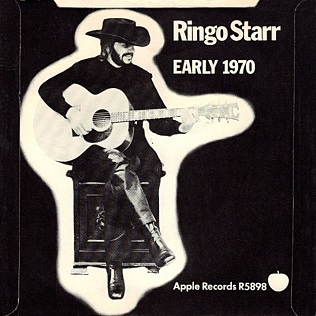
"Early 1970" is a song by English rock musician Ringo Starr that was released as the B-side of his April 1971 single "It Don't Come Easy". A rare example of Starr's songwriting at the time, it was inspired by the break-up of the Beatles and documents his relationship with his three former bandmates. The lyrics to the verses comment in turn on Paul McCartney, John Lennon and George Harrison as individuals, and the likelihood of each of them making music with Starr again. In the final verse, Starr offers a self-deprecating picture of his musical abilities and expresses the hope that all four will play together in the future. Commentators have variously described "Early 1970" as "a rough draft of a peace treaty" and "a disarming open letter" from Starr to Lennon, McCartney and Harrison.

"A Dose of Rock 'n' Roll" is a song written by Carl Groszman, who at the time was signed to Ringo Starr's record label, Ring O' Records. Starr released his own recording of the song on his 1976 album Ringo's Rotogravure. Also issued as the album's lead single, it became his first hit as an Atlantic Records artist.
"Sunshine Life for Me (Sail Away Raymond)" is a song by English musician Ringo Starr from his 1973 album Ringo. It was written by George Harrison, Starr's former bandmate in the Beatles, and was one of several contributions Harrison made to Ringo. Recording for the song took place in Los Angeles in March 1973, with Richard Perry as producer. In addition to Starr and Harrison, the musicians on the track include Levon Helm, Robbie Robertson, Rick Danko and Garth Hudson of the Band, and multi-instrumentalist David Bromberg.
















